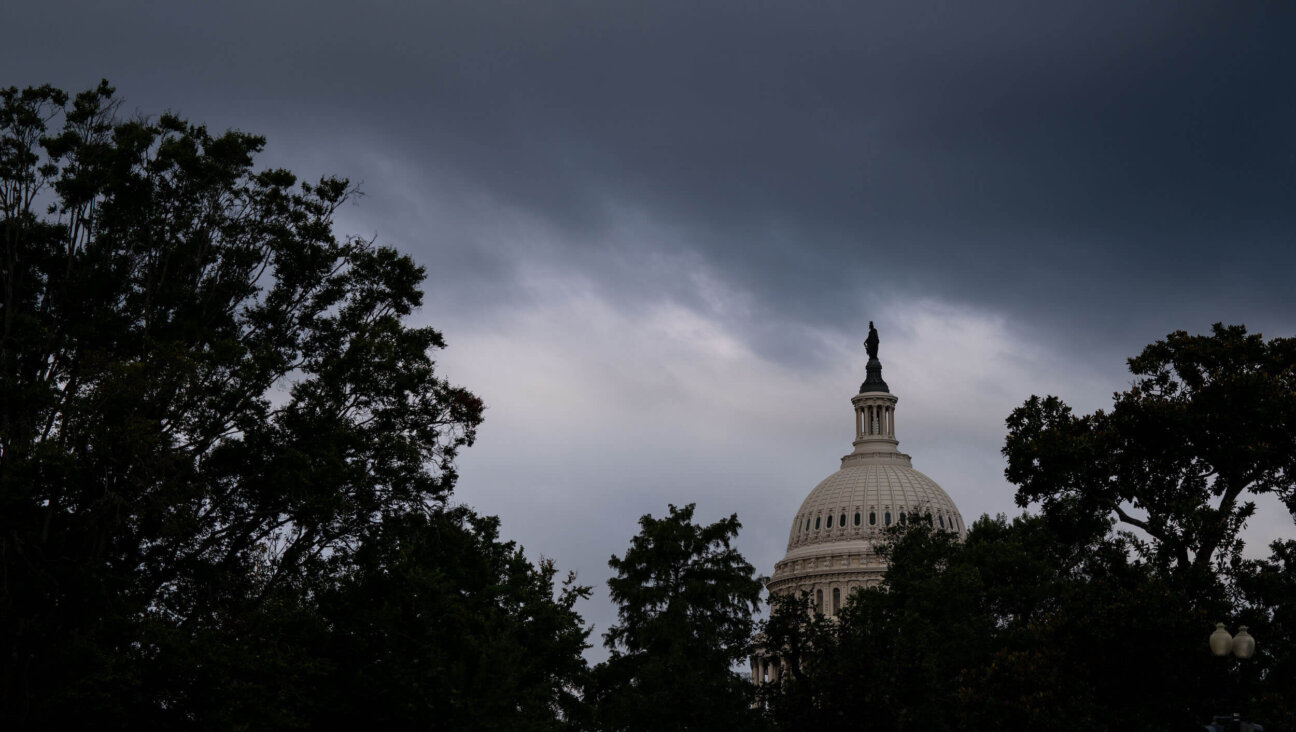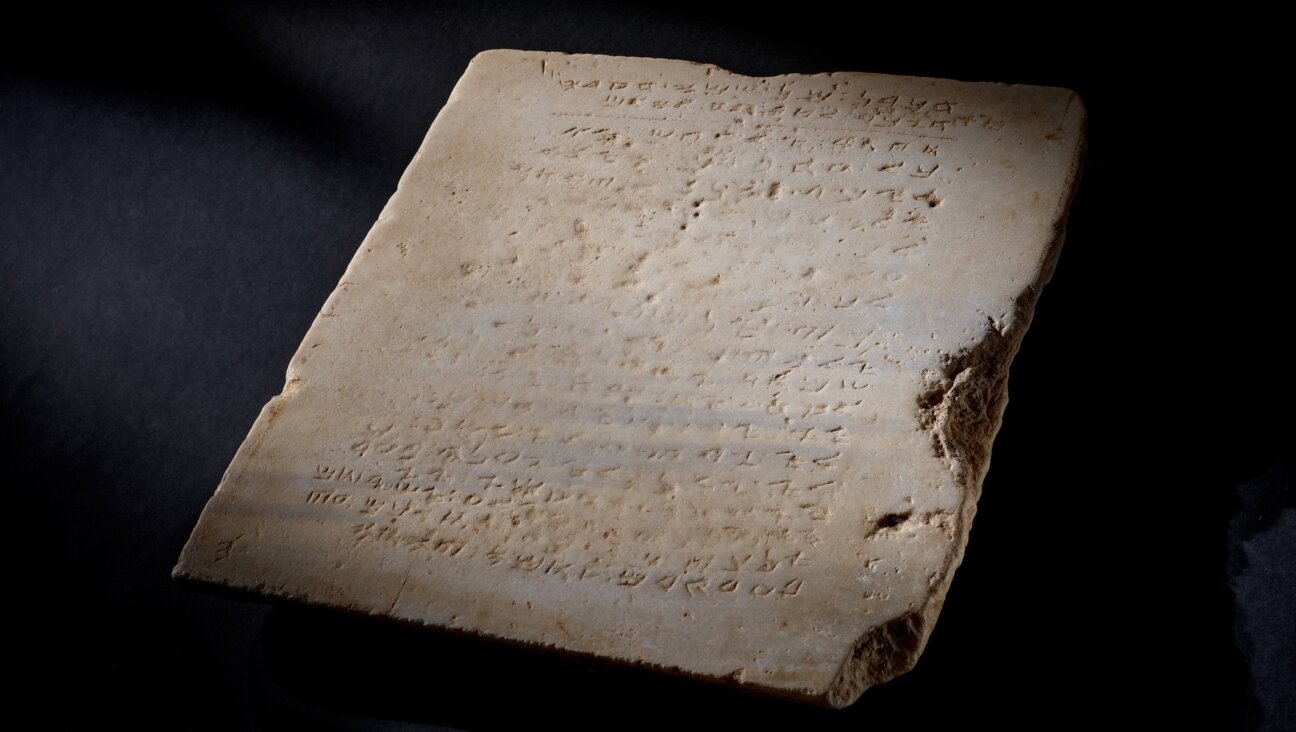New York State Says Relief Resources Doesn’t Help Anyone. It Does.

Wrongly Labeled: Relief Resources, which was wrongly labeled a do-nothing charity by the Moreland Commission, is one of several not-for-profit groups located in this building in Boro Park. Image by josh nathan-kazis
A public corruption panel created by New York Governor Andrew Cuomo wrongly labeled an Orthodox Jewish mental health agency as a do-nothing charity, a joint investigation by the Forward and WNYC has found. But the charity does have ties to operatives with deep political influence who have used it for unrelated political ends.
The Moreland Commission to Investigate Public Corruption presented Relief Resources, which it did not identify by name, as “Illustration #1” of how state-funded charities misuse government funds in a December report.
“[The funds] certainly didn’t go to improve the health of anybody in New York City,” Moreland co-chair William Fitzpatrick said in an upstate radio interview soon after news outlets, including WNYC, identified Relief by name. “Who got those dollars?”
Yet mental health experts and Orthodox community members have lauded the group, which some said has helped lift the stigma against mental illness in the Orthodox community.
“They’ve done amazing kinds of work in terms of community education in a way that I really think has really changed perspectives [in] the Orthodox Jewish community,” said David Pelcovitz, a clinical psychologist and a professor at Yeshiva University’s Azrieli Graduate School of Jewish Education & Administration. Pelcovitz is also a member of Relief’s medical advisory board. “They’ve really made a difference in terms of meeting the mental health needs of what had been a previously underserved community,” he said.
Moreland investigators spent 25 days in 2013 spying on Relief’s offices in Brooklyn’s Boro Park. They set up a camera outside Relief’s front door, keeping track of how many people came and went. They dispatched undercover operatives to see what was going on inside, and called the group’s hotline pretending to be patients. In their report, commission investigators wrote that their probe had raised “significant questions” about the group’s use of state money.
The Moreland Commission’s report stated that Relief had received much of its money through earmarks sponsored by lawmakers, not through competitively bid contracts, and noted that it employed a high-powered lobbying firm. The camera outside “showed little foot traffic to the building,” commissioners wrote, and the investigator who went inside found only one employee. The report also criticized the quality of service that investigators received on Relief’s mental health services referral phone line.
Fitzpatrick went further in his radio interview with WCNY, an upstate public radio station, on December 9, alleging that Relief had not helped any New Yorkers. His office did not respond to multiple requests for comment.
A spokeswoman for the Moreland Commission declined to comment, citing the ongoing investigation.
Relief Resources is only the latest politically connected Jewish organization in New York State to face censure for its coziness with politicians. Three former high-ranking officials with the Metropolitan Council on Jewish Poverty, including two of its former chief executive officers, were indicted in 2013 for taking kickbacks from a vendor that they then used, in part, to make political donations.
Since the 1970s, large portions of New York State’s massive social service apparatus have been reassigned from government agencies to independently operated not-for-profit groups — a version of the outsourcing shift common at all levels of government. Collectively, these not-for-profits receive billions in government contracts to care for the sick and the needy.
Supporters of this system argue that the not-for-profit organizations are more efficient than large government agencies and can better understand the needs of the communities that they serve. Critics point to the way that many of the not-for-profits have turned into powerful political machines that cultivate too-close relationships with the politicians on whom they rely for funding.
Jewish organizations have been particularly adept at building close relationships with government agencies. Most have no taint of impropriety attached to them. The New York Jewish social services agency FEGS, which helps the unemployed find new jobs, and the Jewish Board of Family and Children’s Services, for example, received a combined total of $120 million in government funding in 2012 alone.
Meanwhile, on the streets of Orthodox Brooklyn, a lot of people have good things to say about Relief.
“They refer people to good doctors, professional doctors,” said Solomon Knophler, a member of the Bobov Hasidic community stopped on a Friday afternoon on 13th Avenue in Boro Park. “They guide them to the right places that they need.”
In 15 minutes of stopping Orthodox men and women on 13th Avenue, just a few blocks from Relief’s offices, more than half said that they had heard of Relief.
“It’s a very, very, very helpful organization,” said an ultra-Orthodox man who would only give his name as Abraham. The man said that he had worked at a school in Monsey, a heavily Orthodox town in upstate New York, and that he had frequently contacted the organization for references when looking for help for students there. “They always gave us top references,” he said.
Knophler said that the Moreland Commission’s investigation of Relief and subsequent coverage in the press had surprised him. “I know personally people who went to them, and I’ve never heard complaints,” he said.
Pelcovitz said that he refers people to Relief multiple times a week. Margaret Spinelli, an associate professor of clinical psychology at Columbia University and another member of Relief’s medical advisory board, also praised the organization. “I was very impressed with this group,” she said.
Marcel Biberfeld, senior vice president of psychiatry and community services at Maimonides Medical Center, which is located in Boro Park, said that the quality of Relief’s reference service is particularly good. “This is an organization that has probably the best and most well-researched referral service that I know,” Biberfeld said. “They’ve become the address to go when one needs a referral.”
Despite the defenses of Relief, it’s also clear why the organization and its closely intertwined network of health care not-for-profits drew the attention of the Moreland Commission: Like many other not-for-profits in New York, the group has ties to operatives who have deep political influence. And in at least two cases, those operatives appear to have used the group in a limited way for political ends unrelated to its charitable mission.
Rabbi Shiya Ostreicher, a member of the group’s board, is one of New York’s most powerful ultra-Orthodox lobbyists and has also been listed on state forms since 2011 as a registered lobbyist for Agudath Israel, an important ultra-Orthodox umbrella group. Ostreicher’s lobbying activities for Relief in these two instances seemed to have had little to do with Relief’s mental health mission, but they were strongly related to causes backed by the Agudah, as the ultra-Orthodox umbrella group is often known.
In Albany, the Agudah has been a prime advocate in recent years of legislation that channels aid to Orthodox families. In 2011 the group supported a controversial bill that made students at Orthodox yeshivas eligible for New York State’s Tuition Assistance Program. Another Agudah-backed bill, the Empire State child credit, which passed a few years earlier, offered hundreds of dollars in tax rebates for families with school-age children.
In the two cases in question, money spent by Relief, Ostreicher’s mental health charity, appears to have gone into political lobbying for the causes Ostreicher was working on with the Agudah. In 2007 and 2008, Relief hired the powerful Albany lobbying firm Malkin & Ross to lobby in support of the Empire State child credit, the Agudah-backed tax rebate. Ostreicher signed the agreements, by which Relief agreed to pay a total of $15,000 to Malkin & Ross, according to copies of the contracts filed with the state’s Joint Commission on Public Ethics.
In 2009, Relief hired the same firm for $4,000 to lobby for “higher-education related activities.” Ostreicher also signed that contract. (Later in 2009, Malkin & Ross agreed to do the same work for Relief pro bono.) Ostreicher was working during that time on gaining access to TAP for Orthodox graduate yeshivas, according to press accounts.
In an email, Agudah’s executive vice president Rabbi David Zwiebel said that the organization had “worked together closely” with Ostreicher on both TAP and the Empire State child credit.
Avi Schick, an attorney for Relief, said that the lobbying was on issues that affected the community they were serving, and that the payment to lobbyists was done with donor money.
Ostreicher’s overlapping communal involvements are not limited to Relief and Agudah. A member of the Belz Hasidic sect, Ostreicher is at the nexus of a densely interconnected web of charities. Besides his role as a board member of Relief, he is chairman of a wedding charity called The Students Link; a board member of Refuah Resources, another referral service; treasurer of a new not-for-profit called Premium Health, and president of something called Affordable Drugs Inc. Other board members of Relief and Premium Health run groups called Darkah, a now-shuttered group home for girls who have mental health issues, and Renewal of Life, a group that finds kidney donors. Most of these groups, including Relief, share an address in a small one-story building across from a lumber warehouse on the outskirts of Boro Park.
Among them, the groups in this informal network have received more than $4 million from state and city government in contracts and legislative member items since 2006, much of it for mental health services.
Most of the state and city funding has gone to Relief itself. And much of this money has been directed to it by legislators with close ties to the Agudah, including Marty Golden, a Republican state senator. Former Republican senate majority leader Joseph Bruno also directed funds to Relief.
Ostreicher, a tall man with a large red beard, is “very easy to spot in the hallways of the state capital and the legislative office building,” said Michael Tobman, a political consultant who works frequently in the Orthodox community.
In years past, Tobman said, the Orthodox activists in charge of Relief understood detailed state regulations about administrative structures meant to separate charitable activities from political activities as “procedural niceties… [as] something people didn’t pay terribly much attention to. And now it’s something people take very seriously. There’s more scrutiny on it.
“These are advocates and operatives and professionals and lobbyists who are not out to enrich themselves, is my understanding, but rather work for the betterment of the community,” Tobman said.
This story was co-produced with WNYC, where Robert Lewis is an investigative reporter. Contact him on Twitter at @robertianlewis
Contact Josh Nathan-Kazis at [email protected] or on Twitter at @joshnathankazis
A message from our CEO & publisher Rachel Fishman Feddersen

I hope you appreciated this article. Before you go, I’d like to ask you to please support the Forward’s award-winning, nonprofit journalism during this critical time.
We’ve set a goal to raise $260,000 by December 31. That’s an ambitious goal, but one that will give us the resources we need to invest in the high quality news, opinion, analysis and cultural coverage that isn’t available anywhere else.
If you feel inspired to make an impact, now is the time to give something back. Join us as a member at your most generous level.
— Rachel Fishman Feddersen, Publisher and CEO






















